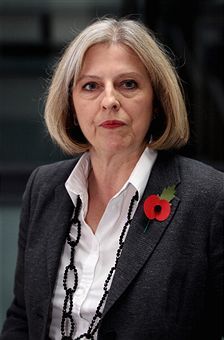 David Cameron currently thinks the coalition is heading for a ‘f***ing car
crash’ on Control Orders. While the Home Secretary Teresa May is now convinced of their necessity, many Liberal Democrats and some Conservatives disagree.
David Cameron currently thinks the coalition is heading for a ‘f***ing car
crash’ on Control Orders. While the Home Secretary Teresa May is now convinced of their necessity, many Liberal Democrats and some Conservatives disagree.
Everyone would prefer potential terrorists be prosecuted, but sensitive counter-terrorism evidence cannot always be used in a criminal court. In addition, the European Convention on Human Rights decrees that terror threats cannot be deported to states where they could be tortured. Hoping to circumvent these problems, the previous government attempted detention without trial. When this was struck out in the courts, Control Orders were the best viable option left.
Control Orders – of which there are nine currently in place – are criticised for being overly authoritarian. However, you don’t just stumble into one. Take the following two cases. Both are suspected al-Qaeda operatives and national security threats, yet cannot easily be prosecuted (membership of a proscribed organisation, for example, is notoriously difficult to prove to a prosecutable standard) and, as they are British citizens, cannot be deported.
AY (his government designated pseudonym) was tried, but not convicted, for conspiracy to murder for his role in the transatlantic ‘liquid bomb’ cell to blow up planes mid-flight. However, he is acknowledged by intelligence sources as ‘the most dangerous and important Al Qaeda operative in Britain’, who ‘is so important to Al Qaeda that a large part of the tactics adopted by those convicted for the liquid bomb plot when questioned by detectives were aimed at keeping him out of jail.’
AM was also connected to the transatlantic cell. He is believed to have trained in Pakistan, and if left to his own devices would travel abroad again to establish contact with al-Qaeda. He was described by a High Court judge as ‘highly intelligent, calm and cautious beyond his years… He was and remains prepared to be a martyr in an attack designed to take many lives. He remains highly trained, security conscious and committed.’
These examples are the norm, not the exception. Yet if we scrap control orders, AM and AY go back into the pool of the 2000-odd that an already over-stretched Security Service are tracking, and we hope for the best.
In the original Observer article which put Control Orders back in the news, Andrew Rawnsley assumed that there is an intercept evidence panacea. Yet the most recent government review into this concluded that ‘the ability to use intercepted material in evidence would not have enabled a criminal prosecution to be brought in any of the [Control Order] cases studied – in other words, it would not have made any practical difference.’ There is an argument for intercept evidence, but it will have no impact whatsoever on the need for Control Orders.
One of the system’s most eloquent defenders – Lord Carlile – is a Liberal Democrat peer. Yet his party still have a stance only appropriate for those who would have never dreamed
that they would be in a position of such influence. Furthermore, the Conservatives should not entertain scrapping Control Orders just because Labour introduced them, or as a concession to the
Liberal Democrats, or because it would be popular domestically.
Those in government arguing against Control Orders have to consider seriously the national security implications of what they are suggesting.
Robin Simcox is a Research Fellow at the Centre for Social Cohesion and author of Control Orders: Strengthening National Security.






Comments